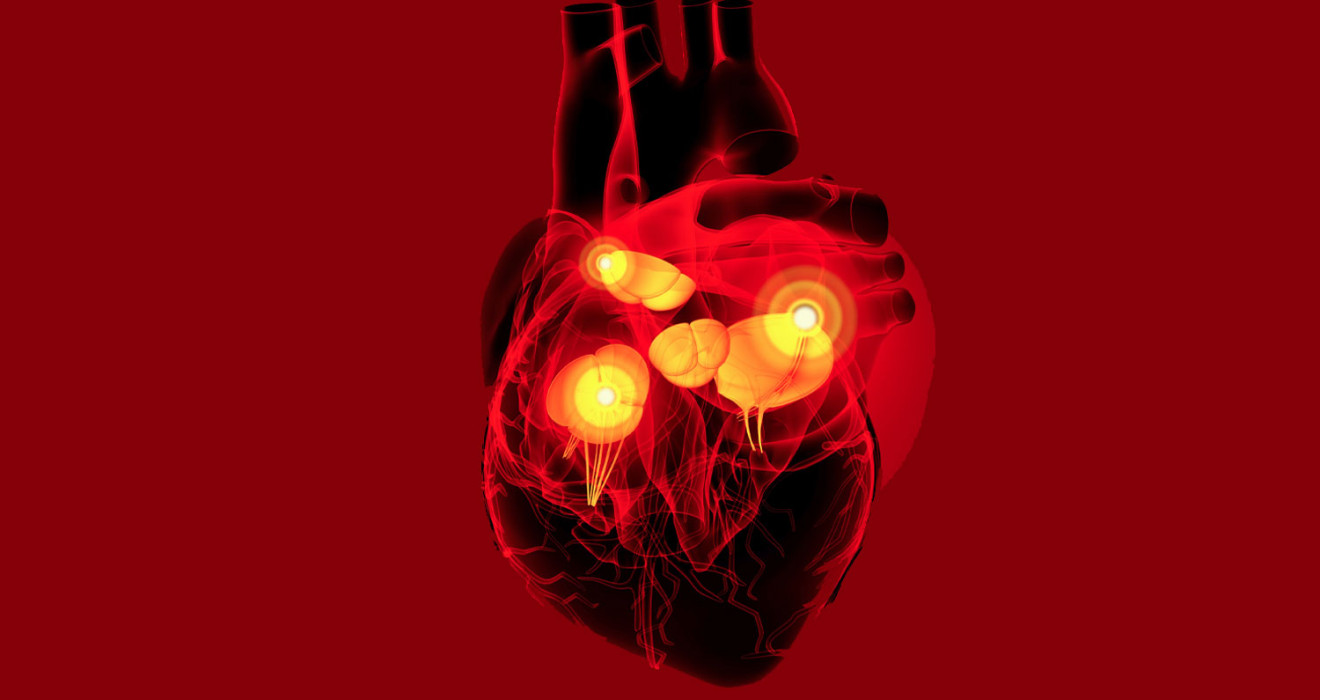
Valvular Heart Diseases Treatment and Follow-up
Valvular heart diseases result from the heart valves' inability to perform normal functions. Heart valves are valves that direct the flow of blood to the right parts of the heart. These valves help the cardiac cycle work properly by keeping blood flowing in the right direction within the heart.
What are Valvular Heart Diseases?
Valvular heart diseases usually occur due to narrowing (stenosis) or leakage (failure) of the valves. These conditions affect the blood flow and prevent the normal functioning of the heart.
Some of the heart valve diseases are as follows:
- Aortic stenosis is a heart valve disease that occurs due to narrowing of the aortic valve.
- Aortic regurgitation: It is a disease that causes blood to flow back due to incomplete closure of the aortic valve.
- Mitral stenosis is a heart valve disease due to a narrowing mitral valve.
- Mitral valve failure: It is a disease that causes blood to flow back due to incomplete mitral valve closure.
- Tricuspid valve failure: It is a disease that causes blood to flow back due to incomplete tricuspid valve closure.
- Pulmonary valve stenosis is a heart valve disease that occurs due to narrowing of the pulmonary valve.
These diseases are just a few examples. There are many diseases related to heart valves.
What are the Most Common Complaints in Heart Valve Patients?
Its symptoms appear in various forms. The most common complaints in heart valve patients are as follows:
- Shortness of breath
- Palpitations
- Chest pain
- Fatigue
- Dizziness
- Edema
What are Valvular Heart Diseases Diagnostic Methods?
Different methods can be used for the diagnosis of it. The methods that can be used are as follows:
- Physical examination: The first step in valvular heart diseases is usually a physical examination by a cardiologist.
- Echocardiography: This is the most common diagnostic method for it. Echocardiography is an imaging test that evaluates the structural and functional properties of the heart using ultrasound waves.
- Electrocardiogram (ECG): ECG testing for valvular heart diseases is often used with a physical examination.
- Chest X-ray: Another test that shows changes caused by valvular heart diseases. The X-ray shows the size and thickness of the valve, the size of the heart chambers, and the blood pressure in the lungs.
- Cardiac catheterization: This is used as a further diagnostic method. Cardiac catheterization uses a thin tube (catheter) to enter the heart and measure blood pressure and oxygen levels.
- Computed tomography (CT): Uses X-rays and computer technology to create a three-dimensional image of the heart and valve.
What are Valvular Heart Diseases Treatment Methods?
Valvular heart disease treatment varies depending on the disease's type and severity and symptoms' severity. The most commonly used treatment methods are as follows:
- Drug Treatment: The drugs used in valvular heart diseases differ according to the type of the disease and the severity of the symptoms.
- Surgery: In some severe cases of it, heart valve surgery may be required.
- Catheter Method: In some cases of valvular heart diseases, treatment with the catheter method is possible.
- Balloon Valvuloplasty: A procedure called balloon valvuloplasty can be applied in the treatment. In this procedure, the balloon is advanced through a vein to the heart through a catheter and the heart valve is opened.
- Antibiotic Treatment: Since some valvular heart diseases risk infection, antibiotic treatment may be required before surgery or other procedures.
Frequently Asked Questions
-
Surgical operations can be performed for valvular heart diseases treatment. It aims to return the patient's heart to its normal functions through repair or replacement surgeries. The surgery option is determined according to the patient's condition, age and type of valve disease.
-
Untreated heart valve diseases can progress and cause serious consequences. Failure of the valves to work properly disrupts the normal functions of the heart and can cause serious health problems such as heart failure, heart attack, rhythm disturbance, and stroke.
-
The age of the patients to be operated on is generally not an obstacle. Elderly patients may be at higher risk of surgery. However, the surgery is performed successfully by taking certain precautions depending on age. Therefore, age is not the only criterion in deciding whether to perform the surgery.
-
In valvular heart diseases treatment, drugs are used to relieve symptoms and slow the progression of the disease. However, drug treatment does not solve the valve problem, and surgical interventions may be required in the later stages of heart valve disease.
-
People with heart valve disease can protect their health by taking certain precautions. Lifestyle changes, such as seeing a doctor regularly, taking medications regularly, not smoking, adopting a healthy diet, exercising, and avoiding stress, can slow the progression of valvular heart disease and improve health status.


